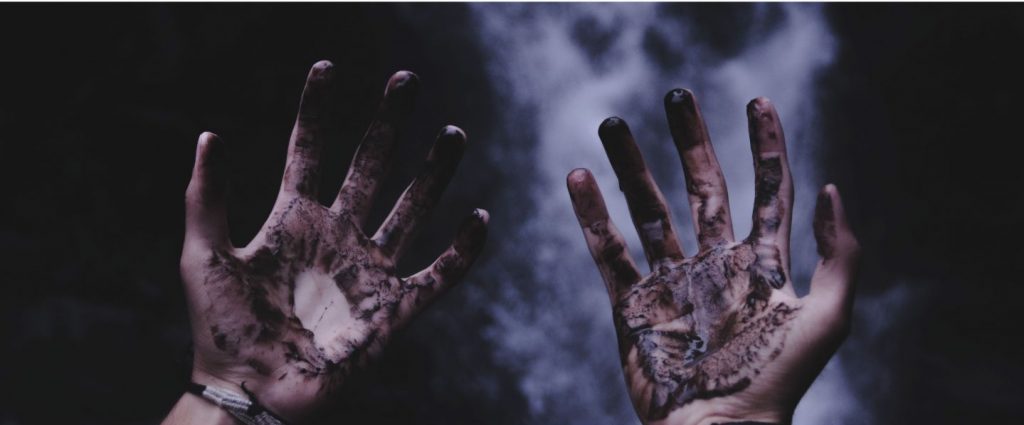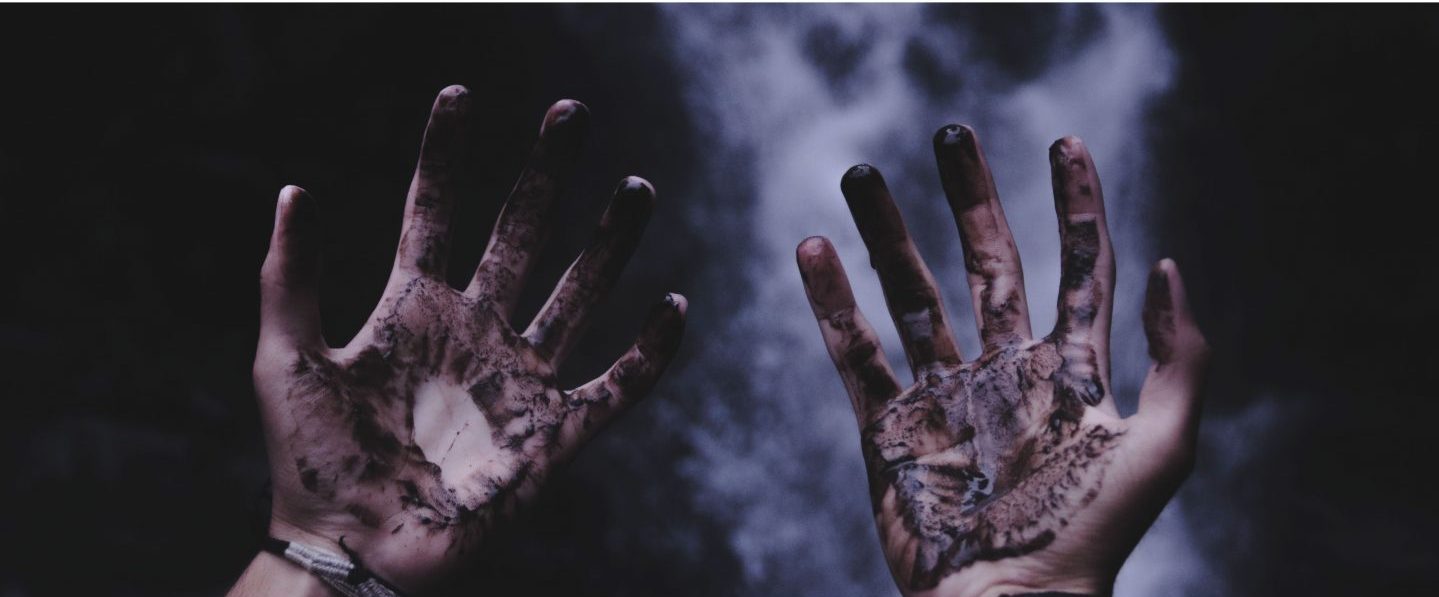
The family came to visit the house one warm Sunday, early May, the April rain lingering in parks, on sidewalks, in the cloudy skies. The afternoon sun filtered through the curtained windows, but inside the cool shadows lay heavy through the still house.
The bell echoed through the old house. Suzanne silenced the CD player’s mournful strains of Elton John. In slippered feet, she shuffled down the hall. Photographs in wooden frames stood on the hallway table like soldiers at attention, uniform as Arlington. Suzanne trailed her fingers over their crisp edges, before folding each of them down.
She pulled open the door on a young family, a sharp-faced woman and a man in sharp business slacks. Between them a young girl, maybe eight, held onto the trim of her mother’s jacket. They stared at Suzanne’s matted hair hanging like Rumpelstiltskin’s gold across the shoulders of a threadbare robe. A wraith, clinging to the doorknob. They stepped inside and brought the sunlight with them, and the door closed and trapped it there.
They introduced themselves as family McFarlane, shrugging off their raincoats in the entry hall, and they made themselves familiar with the house. The woman lingered in the hallway, staring at the folded-down picture frames.
The family uprooted her home, one room at a time, their footsteps like mortar shells. Suzanne clicked the door closed and slumped against it. When the footsteps had receded, Suzanne made her way down the hall. She flipped over the smallest picture, of an alert man in Navy blues, sparkling eyes staring out of the photo paper above a serene expression. Suzanne pocketed this, and kept a hand tight around it.
While Mr. McFarlane went into the backyard to survey the lawn, the flimsy screen door slamming behind him, his wife took careful note of every angle of the house. The sound of doors slamming chased the daughter’s eager footsteps from room to room.
“How long have you lived here without him?” asked Mrs. McFarlane, pulling open the kitchen cabinets and peering into them. Suzanne leaned against the counter, watching.
“That’s none of your concern.”
“I couldn’t help but notice—”
“The photographs? My family’s life is none of your concern,” Suzanne repeated. She stared away from Mrs. McFarlane, out the window. And Mrs. McFarlane didn’t turn from her examination.
The little girl’s voice drifted down, an airy tone that pulled at Suzanne’s heart. “Mommy! There’s a loft!”
“If we buy this house, that can be your room, dear,” called her mother. For a moment, the house grew darker, as if a cloud had drifted over the sun. The closing of the cupboard echoed loudly; it sounded like an invasion, and Suzanne jumped.
When they left, she slumped against the closed door. The voices of the young McFarlanes still echoed against the walls of the empty house, and even the Elton John couldn’t drown them out.
That made it real. Strangers’ feet on the carpets her own family had walked across, after the military representative who had knocked on the door during her husband’s second combat tour, his hands shaking, had come inside and cried across her kitchen table.
That evening, she took the photo albums from the mantle and the pictures from the hallway and spread them on the dining room table. Her husband stared out of one of them, stoic and serene in his military blues. The three of them stood grinning in front of the Grand Canyon, the wind whipping at hair and loose clothing, the year he returned from his first combat tour. A little girl with pigtails, maybe five, sat on a bed surrounded by stuffed animals, grinning with a gap-toothed mouth at the camera.
The McFarlanes had been so close to touching these too.
Suzanne emptied the drawers in the kitchen. She laid out everything on the counters: ticket stubs, old letters, the pearls she’d worn at her wedding. A stack of photos on thick paper showed a second-trimester ultrasound. Mementos: a science fair award; an empty bottle of men’s cologne; a child’s pair of lavender glasses, one lens cracked. Suzanne held this in the glow of the skylight, so the sun itself splintered across her face. The glass blurred the light, or maybe she was crying.
The kettle wailed, the hesitant sound of a young child, and Suzanne ran her thumb across the cracked glass. Beneath her hands, cracked light fell across her pile of mementos. It was a memorial.
The kettle’s whine rose to a scream, and Suzanne turned off the stove. She filled a mug with hot water, and the kettle’s spout clattered against the china. While it steamed, Suzanne leaned against the counter, pressing her palms into the grooves between the tile. Everything around her, fractured and fragmented.
As she ate, she poured over the photo albums, soon to be stacked in boxes for the van going cross-country. The single light above her flickered like the lighting of an intimate restaurant in some French film about loss, where everyone was beautiful and everyone learned to move on.
She took the boxes of her husband’s things from beside the basement door and dragged them into the dining room, beneath the memorial on the table. For a long time, she just stared at them, considering uprooting them too. She drank her tea and the steam pressed into her face. In the end, she swept all her trinkets over the edge of the table, swift and precise, into the boxes.
She remembered the tiny picture frame in the pocket of her robe. The glass had weakened over the years, and the photo had slid out of place; when Suzanne lifted it, her husband’s face tilted in its frame. She flipped it and popped the back panel, lifting the phot, and the glass splintered, snapped by the pressure of her hand clutched around it for hours.
The first piece of glass she touched sliced through her palm. She stared as her blood dripped over the curve of her palm onto her husband’s clean military collar. Only then did she really see it; she ripped a napkin and held it against the cut.
Pressing her bandaged hand to her stomach, Suzanne dragged all the boxes into the room at the end of the hall, a bedroom stripped bare and filled again with folded linens. She stuffed the linens on top of the open boxes. She didn’t pack the quilt her mother had made when Suzanne was pregnant. With delicate fingers, she unfolded it, letting it cascade through the empty room before her, all its vibrant colors almost bringing the room back to life. Surrounded by boxes of her old life, Suzanne pulled the quilt around her body, still draped with the threadbare robe. How many times had she pulled this quilt up to her daughter’s chin to stave off the chill of winter or fever? How many movie nights together, her daughter curled against her beneath this blanket, before the cancer had taken her? Suzanne sat down between boxes, back to the wall, and pressed her face to the fabric of the quilt.
She didn’t cry, as though her body had become another of the empty places of the house. The bedroom was dark, and eventually Suzanne slumped over her folded linens, asleep.
The parents were arguing in the kitchen, the father almost shouting about their budget, about how much their old house had gone for in Winona, the mother’s remarks low and calm.
In the room of photographs, open cardboard boxes overflowed with linens and quilts. A big window let the cloudy light pass over lavender walls. One wall stretched to the window with painted handprints growing in size from an infant’s to a young child’s, with ages written above them. They stopped at thirteen.
This was where the daughter took refuge, while her parents discussed costs and benefits, and where she found Suzanne in front of the window. Suzanne hadn’t closed the curtains, and while the light threw her long shadow across the room, it wreathed the little girl like an angel.
The girl fit her hands into the painted prints as she made her way across the room, dwarfing and then dwarfed by the life of Suzanne’s daughter.
The girl put her small hand over Suzanne’s, and looked with her out the window. For a long time, Suanne didn’t move; she let the silence and the daughter’s solemn presence keep her heart steady.
“I had a daughter, just like you,” Suzanne said at last, her voice hoarse and heavy, with a hint of the lilt she had used when telling her daughter stories. “And a husband, just like your dad, who went off to war in crisp Navy blues and never came home.”
The daughter stared up at Suzanne, wide-eyed and solemn. Suzanne realized that her face was wet with crying. Her whole family, spread out behind them in boxes on the floor, and all the empty spaces in the house that young McFarlane fit herself into. The handprints on the wall. The barren hallway table, where once photographs had stood like Arlington. All the things she’d lost here.
Suzanne sank to her knees before the daughter, wild hair across her face like a widow’s shroud. She took the girl’s hand and reached out to brush the girl’s hair back. An understanding passed between them, sacred as a promise.
The door creaked. Suzanne looked up. The mother stood in the doorway, silent and still.
“Go to your mother,” Suzanne said, and held her hands in the empty air for a long time after the door swung closed behind them.





